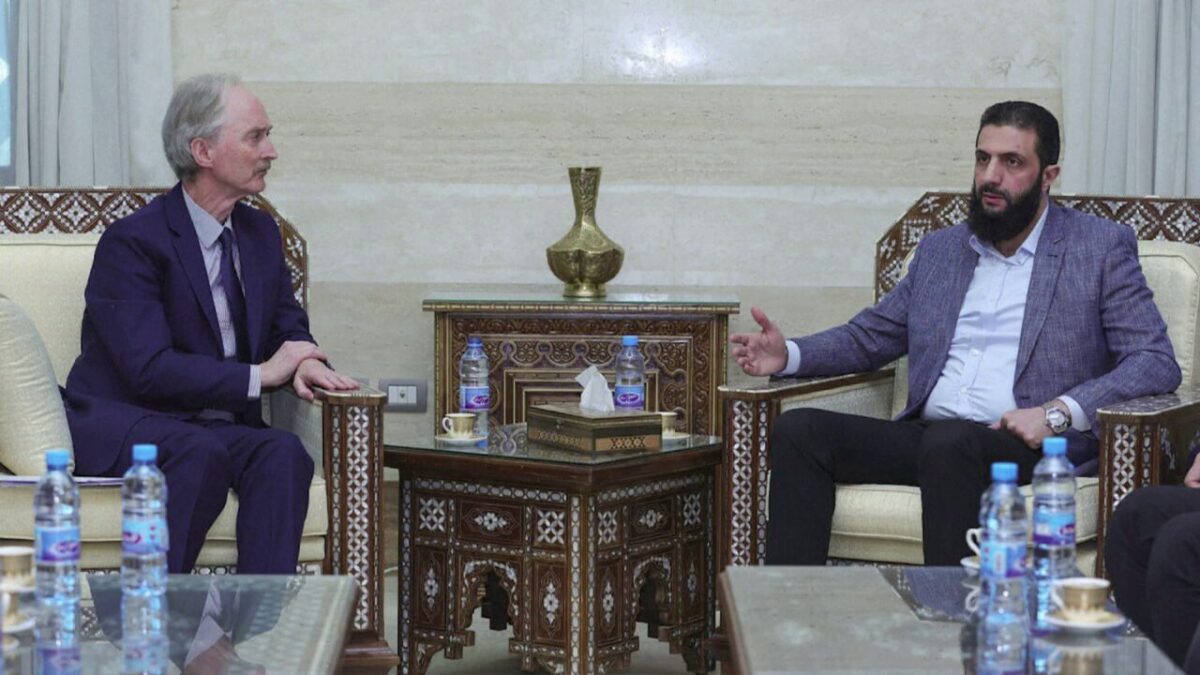BEIRUT, Lebanon — Syria’s de facto leader, Ahmad al-Sharaa, met with United Nations envoy Geir Pedersen on Sunday to discuss revisiting the U.N.’s 2015 roadmap for resolving the Syrian conflict, according to photos and statements released by Hayat Tahrir al-Sham (HTS), the Islamist group that now controls much of the country.
Sharaa, better known by his nom de guerre Abu Mohammed al-Golani, leads HTS, a group that seized power after toppling Bashar al-Assad’s regime. While once allied with al-Qaeda, HTS is now designated a terrorist organization by many countries and remains under U.N. sanctions.
Push for sanctions relief
Pedersen said he hoped for a swift end to sanctions against Syria to help facilitate economic recovery in the war-ravaged country.
In a statement issued by the ruling General Command, Sharaa emphasized the need to reconsider the framework outlined by U.N. Security Council Resolution 2254, the key document intended to guide a political transition in Syria.
Resolution 2254, adopted unanimously in 2015, calls for a Syrian-led and U.N.-facilitated process to establish non-sectarian governance within six months, draft a new constitution, and organize free and fair elections.
U.S. position
U.S. Secretary of State Antony Blinken has reiterated the importance of adhering to Resolution 2254, stressing that Syria’s transition should result in “credible, inclusive, and non-sectarian governance.”
The prospects for implementing Resolution 2254 remain fraught, given Syria’s fractured political landscape, ongoing economic collapse, and HTS’s controversial status on the global stage. Sharaa’s call for revisiting the resolution signals a potential shift in Syria’s approach to international diplomacy, though skepticism lingers over whether HTS leadership is prepared to meet the resolution’s benchmarks for governance and electoral processes.





